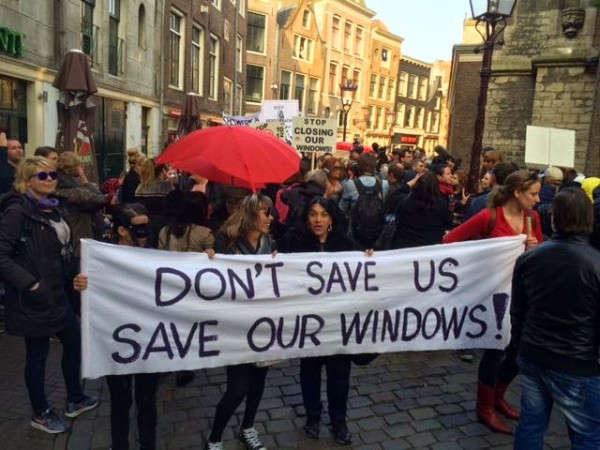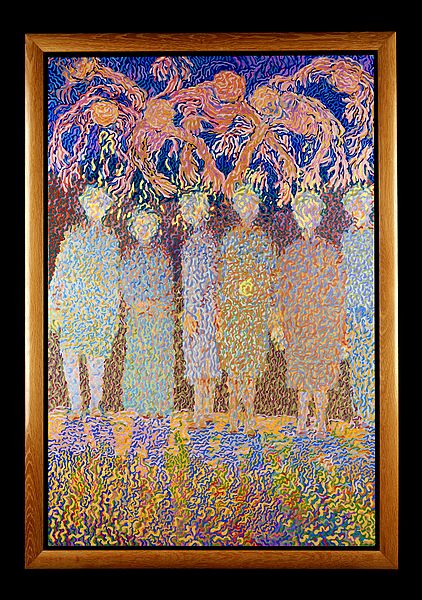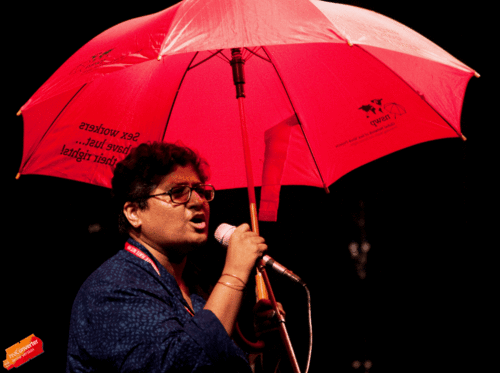The Amsterdam Window Protest: The War Continues

On April 9th, over 200 Amsterdam sex workers and their supporters protested the closing of legal sex businesses in the Red Light District by the city council. The demonstration consisted of a march from the Amsterdam Red Light District to city hall, where the protesters handed a letter to the mayor demanding the reopening of their closed workplaces and the active participation of sex workers in the city’s policy regarding their jobs.
Project 1012
Amsterdam has closed down at least 109 windows already as part of Project 1012, an initiative to bring the number of legal window workplaces down by 40% from 476 to 284. Project 1012, named for the Red Light District area code, is a massive gentrification project aimed at ridding Amsterdam center of “low value” businesses like marijuana coffee shops and the windows.
Government officials consider closing down legal work locations for sex workers an effective measure to prevent trafficking because they believe these businesses to be “sensitive to criminal activity” (“criminogeen” in Dutch, a new word invented solely to justify this policy) simply because they are part of the sex industry. Ironically, even local police voiced a preference for reopening the windows in order to keep sex work legal and visible.
The demonstration, the first of its kind in the Netherlands, was facilitated by PROUD, a sex worker-led union that launched earlier this year. The letter they addressed to Mayor Everhard van der Laan, demanding that the city stop closing windows and reopen closed brothels, as well as actively include sex workers in the city’s sex work policy, was signed by nearly a thousand supporters, many of whom are Red Light District sex workers themselves.
The mayor dismissed the sex workers’ concerns by saying that “the war is over,” maintaining that the issue has already been concluded decisively. He asked the protesters, “You tell me in what other city sex workers can demonstrate in these numbers in the streets,” implying that sex workers should be grateful for the rights they already have. He also stated that the city had already decided to close down fewer brothels, though this policy decision was actually motivated by the city council’s desire to lower Project 1012’s 108 million euro budget.


